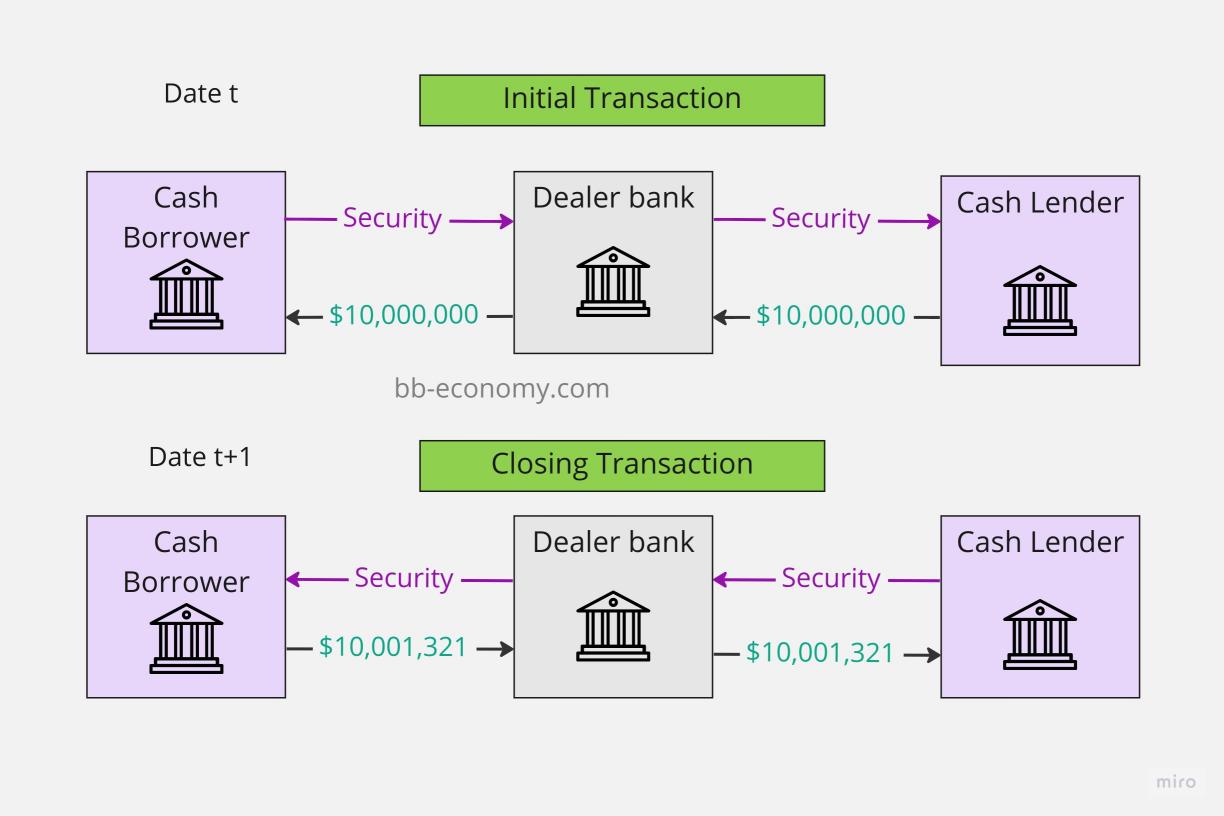Repo Trucks For Sale: Your Comprehensive Guide to Smart Savings typestruckssale.com
In the vast and often overwhelming world of vehicle acquisition, a unique segment stands out for its potential to deliver significant value: repo trucks for sale. These aren’t just any used vehicles; they are trucks that have been repossessed by lenders due to loan defaults, offering a distinct pathway for individuals and businesses to acquire diverse and often well-equipped vehicles at competitive prices.
Whether you’re a small business looking to expand your fleet, a contractor needing a reliable workhorse, or an individual seeking a powerful pickup without the hefty price tag of a new model, understanding the ins and outs of the repo truck market can unlock incredible opportunities. This comprehensive guide will navigate you through every aspect of purchasing a repo truck, from understanding their origin to sealing a successful deal, ensuring you’re well-equipped to make an informed and advantageous decision.
Repo Trucks For Sale: Your Comprehensive Guide to Smart Savings
Understanding Repo Trucks: The Source and the Opportunity
Repo trucks, short for repossessed trucks, are vehicles that financial institutions, credit unions, or other lenders have reclaimed from borrowers who failed to meet their loan obligations. Once a vehicle is repossessed, the lender’s primary goal is to recover the outstanding balance of the loan as quickly as possible. To do this, they typically sell the vehicle through various channels, often at prices significantly below typical market value to facilitate a swift sale.
This creates a unique market dynamic where buyers can find a wide array of trucks – from light-duty pickups and SUVs to heavy-duty commercial vehicles like dump trucks, semi-trucks, and specialized utility vehicles – all offered with the primary aim of recouping a debt. Unlike vehicles sold by private owners or traditional dealerships, repo trucks often come with the inherent understanding that they are sold "as-is," requiring a more diligent approach from the buyer. This "as-is" nature, while a consideration, is also what contributes to their attractive pricing, making them a compelling option for savvy buyers.
The Compelling Advantages of Buying a Repo Truck
Opting for a repo truck offers several distinct benefits that make it an attractive alternative to purchasing new or even standard used vehicles:
- Significant Cost Savings: This is arguably the biggest draw. Lenders prioritize liquidating assets to recover funds, which often means setting prices below retail or even wholesale market values. This can translate into substantial savings for the buyer, sometimes thousands of dollars compared to a comparable model from a dealership.
- Diverse and Specialized Inventory: The range of repo trucks available is incredibly broad. You can find everything from common consumer pickups and SUVs to highly specialized commercial vehicles like tow trucks, box trucks, flatbeds, and even construction equipment. This diversity is particularly appealing for businesses with specific operational needs.
- Quick Availability: Lenders want to move these assets fast. This means less waiting time for buyers compared to ordering a new vehicle or waiting for a specific used model to appear on the market.
- Potential for High Value: Many repossessed trucks are relatively new or well-maintained, as the previous owners may have been current on maintenance even if they defaulted on payments. Finding a well-cared-for truck at a repo price can represent exceptional value.
- Ideal for Businesses: For companies looking to expand their fleet on a budget, repo trucks offer an economical way to acquire reliable vehicles for various purposes, from deliveries to specialized services.


Finding repo trucks requires knowing where to look, as they aren’t typically advertised in the same way as standard used vehicles. Here are the primary avenues to explore:
- Financial Institutions (Banks & Credit Unions): Many banks and credit unions maintain a dedicated "repossessed vehicles" section on their websites or have physical lots where they sell these assets directly. Contacting their loan departments or asset recovery divisions can also yield information.
- Online Auction Platforms:
- Government Auctions (GSA Auctions): The U.S. General Services Administration (GSA) regularly auctions off surplus government vehicles, including trucks, which can sometimes include repossessed assets from federal agencies.
- Specialized Auction Sites (Copart, IAAI): While often associated with salvage or damaged vehicles, these large auction platforms frequently list repossessed vehicles, sometimes in excellent condition. They cater to a wide range of buyers, including individuals.
- eBay Motors: The online marketplace often has listings for repo trucks, either directly from lenders or from dealers specializing in repossessed vehicles.
- Local Auto Auctions: Many general public auto auctions have sections or dedicated sale days for repossessed vehicles. Check local auction house schedules and inventory.
- Specialized Repo Dealers: Some dealerships specialize in acquiring repossessed vehicles from lenders and then reselling them. These dealers often provide more traditional sales support, though prices may be slightly higher than direct auction purchases.
- Credit Union Websites: Beyond major banks, local credit unions are excellent sources. They often list their repossessed inventory directly on their websites, sometimes offering financing options specifically for these vehicles.

The Buying Process: A Step-by-Step Guide
Purchasing a repo truck demands a meticulous approach. Follow these steps to maximize your chances of a successful and satisfying purchase:
- Step 1: Define Your Needs and Budget: Before you start looking, clarify what type of truck you need (e.g., light-duty pickup, cargo van, dump truck), your desired features, and, most importantly, your absolute maximum budget. Remember to factor in potential repair costs.
- Step 2: Research and Locate Potential Vehicles: Utilize the sources listed above. Be persistent, as inventory changes frequently. Filter your search by vehicle type, location, and price range.
- Step 3: Thorough Inspection is Paramount: This is the most critical step. Since most repo trucks are sold "as-is," a comprehensive pre-purchase inspection is non-negotiable.
- Visual Check: Inspect the exterior for body damage, rust, tire condition, and interior for wear, tears, and missing components.
- Mechanical Check: Look for fluid leaks, check engine components, belts, hoses.
- Test Drive (If Permitted): Listen for unusual noises, check the transmission, brakes, steering, and all electrical components (lights, AC, radio).
- Bring a Mechanic: If possible, arrange for a trusted, independent mechanic to inspect the vehicle. Their trained eye can spot issues you might miss, potentially saving you thousands in future repairs.
- Step 4: Obtain a Vehicle History Report: Use the Vehicle Identification Number (VIN) to get a Carfax or AutoCheck report. This will reveal critical information such as accident history, previous owners, reported mileage, service records, and any liens or salvage titles.
- Step 5: Understand the Sale Terms: Whether buying from an auction or a direct sale, read all terms and conditions carefully. Pay attention to payment methods, pickup deadlines, buyer’s premiums (at auctions), and the "as-is" clause.
- Step 6: Bidding or Negotiating: Stick to your pre-determined maximum budget. At auctions, avoid emotional bidding. If buying directly, be prepared to negotiate but also know when to walk away.
- Step 7: Financing and Payment: Secure financing beforehand if needed. Many lenders offer loans for repo vehicles, but interest rates might vary. Be prepared with a cashier’s check or wire transfer, as personal checks are rarely accepted for immediate payment.
- Step 8: Title Transfer and Registration: Ensure you receive a clear title free of any liens. Verify that the seller has the legal right to transfer ownership. Promptly register the vehicle in your name and secure insurance.
Critical Considerations Before You Buy
While the allure of savings is strong, a wise buyer understands the inherent risks and important factors to consider:
- "As-Is" Sales and No Warranty: The vast majority of repo trucks are sold without any warranty, explicit or implied. This means you assume all responsibility for any repairs or issues that arise after purchase.
- Hidden Damage and Maintenance: Previous owners might not have maintained the truck well, or it could have undisclosed mechanical or cosmetic damage. Always budget for immediate maintenance (e.g., oil change, fluid checks, new tires) and potential repairs.
- Vehicle History: A thorough history report is vital. Be wary of vehicles with salvage titles, flood damage, or a history of major accidents, as these can lead to ongoing problems and difficulty insuring or reselling the truck.
- Liens and Clear Titles: Verify that the title is clear and free of any outstanding liens. A clear title means the lender has fully released their claim on the vehicle, allowing you to register it without issue.
- Transportation Costs: If you purchase a truck from an online auction or a distant location, factor in the cost of transportation, which can be significant for larger vehicles.
- Registration and Insurance: Don’t forget to account for sales tax, registration fees, and insurance costs, which are added expenses on top of the purchase price.
Types of Repo Trucks You Can Find
The repo market offers an impressive array of truck types, catering to a wide range of needs:
- Light-Duty Trucks: This category includes popular full-size and mid-size pickup trucks (e.g., Ford F-150, Chevy Silverado, Ram 1500, Toyota Tacoma), SUVs (e.g., Chevrolet Tahoe, Ford Expedition), and cargo vans (e.g., Ford Transit, Mercedes-Benz Sprinter). These are ideal for personal use, small businesses, or light hauling.
- Medium-Duty Trucks: Often used for commercial purposes, this segment includes box trucks, flatbed trucks, utility trucks, and larger passenger vans. They are perfect for delivery services, construction, landscaping, and various trades.
- Heavy-Duty Trucks: For serious commercial operations, the repo market can yield semi-trucks (tractor-trailers), dump trucks, concrete mixers, refuse trucks, and other heavy-duty vocational vehicles. These are significant investments but can offer substantial savings over new purchases.
- Specialized Vehicles: Occasionally, you might find highly specialized repo vehicles such as tow trucks, food trucks, mobile workshops, or service vehicles equipped for specific industries.
Smart Tips for a Successful Repo Truck Purchase
To navigate the repo truck market effectively and secure a great deal, keep these tips in mind:
- Be Patient and Persistent: The right truck at the right price might not appear overnight. Consistent searching and patience will pay off.
- Set a Firm Budget (and Stick to It): Include a contingency fund for unexpected repairs. Emotional bidding or buying can lead to overspending.
- Do Your Homework: Research common issues for specific makes and models you’re interested in. Know what to look for and what questions to ask.
- Bring a Mechanic (or Be One): This cannot be stressed enough. A professional inspection is your best defense against hidden problems.
- Verify All Documentation: Ensure the VIN matches the title, and that the title is clear and ready for transfer.
- Factor in All Costs: Beyond the purchase price, consider transportation, repairs, maintenance, taxes, fees, and insurance.
- Don’t Get Emotional: View the purchase as a business transaction. If a deal doesn’t feel right or exceeds your budget, be prepared to walk away.
Addressing Potential Challenges and Solutions
While repo trucks offer great value, they come with unique challenges. Being aware of them and knowing how to mitigate them is key:
- Challenge: Undisclosed Damage or Mechanical Issues.
- Solution: Conduct a thorough pre-purchase inspection by a certified mechanic. Obtain a comprehensive vehicle history report (Carfax/AutoCheck) to check for reported accidents or significant repairs.
- Challenge: No Test Drive or Limited Information.
- Solution: This is common with auction sales. Rely even more heavily on the mechanic’s inspection and the vehicle history report. Assume the worst-case scenario for repairs and factor that into your maximum bid. Examine photos closely and ask for additional information if available.
- Challenge: Competitive Bidding at Auctions.
- Solution: Set a firm maximum bid before the auction starts and discipline yourself to stick to it. Don’t get caught up in the excitement of the moment.
- Challenge: Title Problems or Outstanding Liens.
- Solution: Always verify the title is clear and that the seller has the legal right to transfer ownership before making any payment. Reputable lenders will ensure a clear title, but it’s crucial to confirm.
- Challenge: Remote Purchase Difficulties (Inspection, Transport).
- Solution: For distant purchases, consider hiring a third-party inspection service in the area. Research transport companies in advance to get quotes and understand logistics.
Repo Truck Price Guide
Please note that these are approximate ranges and can vary significantly based on the truck’s condition, mileage, age, make, model, specific features, the seller, and current market conditions. This table provides a general idea of what you might expect.
| Type of Repo Truck | Typical Repo Price Range (Low) | Typical Repo Price Range (High) | Notes/Factors Affecting Price |
|---|---|---|---|
| Light-Duty Pickups (e.g., Ford F-150, Chevy Silverado, Ram 1500) | $5,000 | $30,000+ | Price varies greatly by age, mileage, condition, trim level, and 2WD/4WD. Newer models with lower mileage and higher trim packages will command higher prices. |
| SUVs (e.g., Tahoe, Expedition, Grand Cherokee) | $4,000 | $25,000+ | Similar factors as pickups. Luxury SUVs can reach higher prices even as repos. |
| Cargo/Work Vans (e.g., Ford Transit, Sprinter, Express) | $6,000 | $28,000+ | Condition, mileage, internal shelving/upfitting, and specific model (e.g., Sprinter vs. Express) significantly impact price. |
| Medium-Duty Box Trucks (e.g., Isuzu NPR, Hino, Ford F-Series w/box) | $10,000 | $45,000+ | Age, mileage, box size, presence of a liftgate, and engine type (diesel vs. gas) are key determinants. |
| Flatbed Trucks (medium-duty) | $12,000 | $50,000+ | Length of the bed, payload capacity, axle configuration, and engine condition are crucial factors. |
| Dump Trucks (medium-duty) | $15,000 | $60,000+ | Capacity (e.g., cubic yards), axle configuration (single vs. tandem), engine hours, and the condition of the dump body. |
| Semi-Trucks / Tractor Units | $15,000 | $80,000+ | Age, mileage, engine type, transmission (manual vs. automatic), and whether it’s a sleeper or day cab. Well-maintained, newer models can exceed this range. |
| Tow Trucks (light to medium-duty wrecker) | $10,000 | $70,000+ | Type of wrecker (wheel lift, flatbed, integrated), lifting capacity, and the overall condition of the vehicle and its specialized equipment. |
| Specialized Vehicles (e.g., Food Trucks, Utility Service) | $15,000 | $100,000+ | Highly variable based on the specialized equipment installed, quality of the build-out, and the original purpose of the vehicle. |
Frequently Asked Questions (FAQ) About Repo Trucks
Q: Are repo trucks always damaged or in bad condition?
A: Not necessarily. While some may have cosmetic flaws or require minor repairs, many repo trucks are in good to excellent condition. Their condition largely depends on how they were treated by the previous owner and how long they’ve been sitting. A thorough inspection is crucial to determine their actual state.
Q: Can I get a warranty on a repo truck?
A: Generally, no. Most repo trucks are sold "as-is," meaning there is no warranty from the seller (the financial institution or auction house). This is why a pre-purchase inspection by an independent mechanic is so important.
Q: Is financing available for repo trucks?
A: Yes, many banks and credit unions offer financing for used vehicles, including repo trucks. It’s often best to get pre-approved for a loan before you start shopping, especially if you plan to bid at an auction. Some credit unions even specialize in financing their own repossessed inventory.
Q: How do I know if the title is clear?
A: You should always request a Vehicle History Report (like Carfax or AutoCheck) using the VIN. This report will indicate if there are any active liens on the vehicle or if it has a salvage/rebuilt title. Additionally, reputable sellers (like banks or established auction houses) will ensure the title is clear before selling.
Q: What’s the biggest risk when buying a repo truck?
A: The biggest risk is buying a truck with hidden mechanical problems or undisclosed damage due to the "as-is" nature of the sale and often limited opportunity for test drives. This risk is best mitigated by a comprehensive pre-purchase inspection by a qualified mechanic.
Q: Can I test drive a repo truck?
A: It depends on the seller. If buying directly from a bank or a specialized repo dealer, a test drive might be possible. At many auctions, test drives are often not permitted, or they are very limited (e.g., only on a lot, not public roads). This makes the visual and mechanical inspection even more critical.
Q: Are repo trucks always cheaper than regular used trucks?
A: In most cases, yes. The primary goal of selling a repossessed vehicle is to quickly recover the outstanding loan balance, which often leads to prices below typical retail or even wholesale market value for comparable used trucks. However, the exact discount varies widely based on demand, condition, and the specific vehicle.
Concluding Summary
Purchasing a repo truck can be a highly rewarding venture for the informed and diligent buyer. It represents a significant opportunity to acquire a diverse range of vehicles, from everyday pickups to specialized commercial workhorses, at potentially substantial savings.
The key to success lies in meticulous preparation, thorough research, and, most critically, an unwavering commitment to a comprehensive pre-purchase inspection. While the "as-is" nature of these sales demands caution, by understanding where to look, how to evaluate, and what questions to ask, you can confidently navigate the repo truck market. With patience and a strategic approach, a repo truck could be the smart, cost-effective solution you’ve been searching for, driving value and utility straight into your hands.
